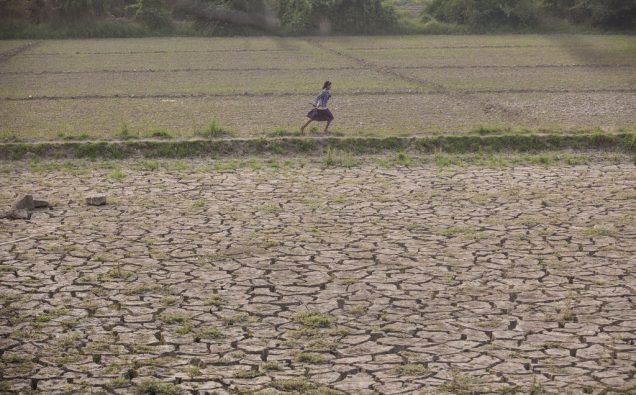
The year 2019 has begun ominously with record chilly winter in North America making Chicago colder than parts of the Mars and one of the hottest summers baking Australian cities.
Between the two extreme scenarios have been signs that snowfall has stimulated tourism activity in South Asia with Malam Jabba in Pakistan’s Swat valley seeing a return of international skiers. Elsewhere, Rains have also saved people from smog that usually hits South Asian cities in dry winters.
But this is not a normal course the world has witnessed in recent years.
The contrasting weather patterns, especially the snowfall in the United States, gave ammunition to Climate Change and Global Warming opponents to deny anything of the sort happening at all.
Yet, climate scientists have rejected the proposition and say it is Polar Vortex phenomenon that froze parts of the Midwest in the United States early this year.
As noted by the United Nations the year began with severe winter storms hitting the eastern Mediterranean and parts of the Middle East, afflicting vulnerable populations lacking adequate shelter, including refugees in January.
An unusually cold front also swept south through the Arabian Peninsula, bringing a widespread dust storm from Egypt to Saudi Arabia, Bahrain, Qatar, Iran and the United Arab Emirates, also brought heavy rain and precipitation to Pakistan and northwest India, the World Meteorological Organization said in a report.
The floods, droughts and extreme temperatures in the last decade have proved that climate change has a direct link with development. The implication are more pronounced for the countries with low income and ineffective governance. The effects will not just be confined to these countries but like conflicts will have serous repercussions for all parts of the world.
The international response to the frequent climatic events – sometimes with deadly consequences for developing countries – came up in a coherent form with the approval of a 2015 Paris Agreement – a political commitment to address the issue. In the United States, President Donald Trump’s Administration is averse to the accord citing harmful domestic economic implications from the ambitious goals set out to reduce carbon emissions.
While the UN has been spearheading a concerted awareness campaign to act against global warming, many developing countries lack resources to cope with immediate repercussions.
Late last year, the World Bank unveiled its 5-year investments commitment to stem the climate degradation with $200 billion in assistance for the countries.
According to the Bank, the $200 billion across the Group is made up of approximately $100 billion in direct finance from the World Bank (IBRD/IDA), and approximately $100 billion of combined direct finance from the International Finance Corporation (IFC) and the Multilateral Investment Guarantee Agency (MIGA) and private capital mobilized by the World Bank Group.
“A key priority is boosting support for climate adaptation, recognizing that millions of people across the world are already facing the severe consequences of more extreme weather events. By ramping up direct adaptation finance to reach around $50 billion over FY21-25, the World Bank will, for the first time, give this equal emphasis alongside investments that reduce emissions.
“People are losing their lives and livelihoods because of the disastrous effects of climate change. We must fight the causes, but also adapt to the consequences that are often most dramatic for the world’s poorest people,” said World Bank Chief Executive Officer, Kristalina Georgieva.
This is why we at the World Bank commit to step up climate finance to $100 billion, half of which will go to build better adapted homes, schools and infrastructure, and invest in climate smart agriculture, sustainable water management and responsive social safety nets.”
But can the government do the job of protecting the planet by themselves alone?
“There are literally trillions of dollars of opportunities for the private sector to invest in projects that will help save the planet,” said IFC CEO Philippe Le Houérou.
“Our job is to go out and proactively find those opportunities, use our de-risking tools, and crowd in private sector investment. We will do much more in helping finance renewable energy, green buildings, climate-smart agribusiness, urban transportation, water, and urban waste management.”
In a statement, the Bank listed priority areas of work:
In Energy: Support the generation, integration, and enabling infrastructure for 36 GW of renewable energy and support 1.5 million GWh equivalent of energy savings through efficiency improvement;
In Cities: Help 100 cities achieve low-carbon and resilient urban planning and transit-oriented development;
In Food and Land-Use: Increase integrated landscape management in up to 50 countries, covering up to120 million hectares of forests.
The World Bank commitment provides a window of opportunity to the developing countries to deal with and mitigate effects of natural disasters and climate change.
While the Paris Accord and the World Bank commitment give rise to hopes for the planet, it is the implementation of the projects through quality governance and efficient use of funds that will determine the outcome and help save development from harmful implications of climate change.
Meanwhile, the world, especially rich countries and large economies like China and the U.S. can hardly take a pause and should be ready to coordinate efforts to minimize dangers of global warming and deal with any new disasters as a family having joint stakes in the future of the planet. Firefighting alone will not help. Strategic thinking, planning and constant awareness campaigns through effective communication will be critical as political leaders draw up policies for a better future.















